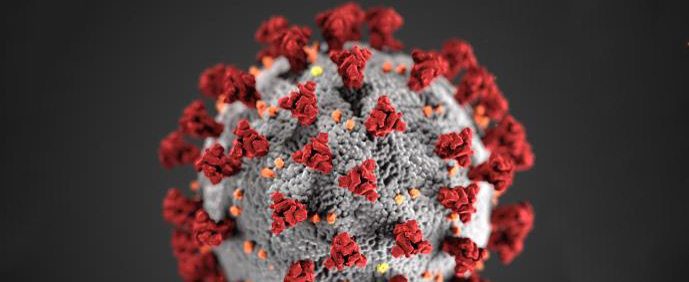Digestive Distress: Holistic Approaches to Irritable Bowel Syndrome
When the smooth rhythm of the muscles of the digestive tract is disrupted, either moving too quickly or too slowly, we experience digestive distress. For some of us, this distress can be frequent and painful, creating a major disruption in our life and in our lifestyle. Several health conditions are marked by severe digestive distress including ulcerative colitis, Crohn’s Disease and Irritable Bowel Syndrome (IBS). While all of these conditions involve inflammation of the lining of the bowel, IBS can be healed through careful shifts in diet and lifestyle.
Several health conditions are marked by severe digestive distress including ulcerative colitis, Crohn’s Disease and Irritable Bowel Syndrome (IBS). While all of these conditions involve inflammation of the lining of the bowel, IBS can be healed through careful shifts in diet and lifestyle.
What is IBS?
Irritable Bowel Syndrome is marked by abdominal pain, changes in bowel habits, and a cluster of symptoms that last for three months or longer. Symptoms vary for each person and can include:
- Stomach gas and bloating
- Alternating diarrhea and constipation
- Mucus in the stool
- Nausea after eating
- Rectal bleeding
- Abdominal pain that progresses or occurs at night
- Weight loss not explained by dieting or other health concerns
Irritable Bowel Syndrome can be caused by one or several underlying health factors that cause a disruption in the digestive tract. These factors can include:
Food Allergy or Sensitivity. Research has shown that Irritable Bowel Syndrome can be triggered or made worse in people who are consuming foods to which they have a food allergy, intolerance or sensitivity. For some people a specific category of carbohydrate foods known as “high-FODMAP” create symptoms of IBS. For a list of food culprits, read the article below and see how you can help determine what is causing your distress.
Imbalance in Gut Flora. In the digestive system, we have friendly gut flora that support the process of digestion, nutrient absorption, and immunity. If we don’t have enough friendly flora, or there is an overgrowth of unfriendly flora, or an infection, then inflammation, nutritional deficiency, and digestive distress can result. Processed foods, stress and antibiotic use can also increase inflammation and trigger or worsen Irritable Bowel Syndrome.
Hormones. Changes in hormones, particularly for women, can cause a cascade of changes in the body, including digestion.
A Holistic Plan for Healing Irritable Bowel Syndrome
Holistic practitioners assess for Irritable Bowel Syndrome using diagnostic tools such as physical exam, lab tests, stool and urine tests, food allergy or sensitivity testing, dietary assessment, and assessment of lifestyle factors including stress level, sleep quality, etc. The goal is to identify sources of inflammation that have set the stage for developing IBS. Once identified, doctor and patient, and sometimes a health coach, will develop a plan to minimize/ eliminate exposure to triggers, reduce inflammation, and promote healing.
The “healing plan” for IBS will be different for every person because so many factors interact to produce inflammation and symptoms. This plan can include following a Low-FODMAP Diet (useful for a variety of GI conditions), nutritional and herbal supplementation, stress management, avoiding smoking and caffeine, moderating alcohol intake, adjusting sleeping habits, and exercise.
If you suspect that you are affected by IBS, contact Dr. Fenske about an evaluation and put yourself on the road to wellness. It is possible to enjoy food again and heal from Irritable Bowel Syndrome.
[hr]
Fermented Foods
You can support your gut health with fermented, nutrient-potent foods. Ranging from tangy to bitterly-sweet in flavor, these foods originated decades ago in the cultures of Japan, China, India, and Germany.
Fermenting imbues foods with the health-enhancing properties of live bacteria, providing an ample source of probiotics, which are essential to a strong digestive tract. Probiotics help build up antibodies to pathogens and provide for a strong “gut immunity” which is key to maintaining overall vibrant health.
Fermented Foods Short List
- Cultured Dairy: Yogurt, kefir, buttermilk, sour cream, and some cheeses
- Veggies: Beets, radishes, tomatoes, onions, garlic, kimchi, green beans, sauerkraut
- Condiments fermented at home or commercially: ketchup, relish, salsa, chutney
- Other: Miso, tempeh, tofu, soy sauce, and kombucha (check that sugar content is not high on any pre-packaged or bottled fermented food).
Tips for Choosing & Storing Fermented Food
- Food labels must be marked “fermented.”
- Fermented and “pasteurized” do not go together. Pasteurization kills live cultures.
- Pickled is not the same as fermented (unless indicated on the label). Pickled foods are soaked in vinegar or brine.
- Choose organic, non-GMO items or locally farmed products.
- All fermented foods must be kept cool to maintain the live cultures.
Adding Fermented Foods to Your Daily Diet
When introducing fermented foods to your daily diet, start with small servings such as 1-2x a day. A few easy ways to sneak in fermented foods: Toss fermented veggies into salads or rice dishes. Enjoy fermented food as a snack or as a side dish (e.g., beets, tempeh, kimchi). Add a spoonful of a fermented food to your morning smoothie (e.g., beets, kefir).
[hr]
FODMAP Diet for Irritable Bowel Syndrome
Digestive complaints are among the most common health concerns. If you’re experiencing distress, a holistic practitioner will evaluate the foods and substances you are eating to identify where a reaction exists. There are many ways to conduct a dietary analysis, including food diary, food allergy or sensitivity testing, and elimination diets. The FODMAP Diet is often recommended by healthcare practitioners.
What is a FODMAP?
FODMAP stands for fermentableoligo-, di-, mono-saccharides and polyols. This scientific term is used to identify groups of carbohydrates – also known as “fermentable carbs” – that trigger digestive problems such as bloating, gas, abdominal pain, constipation, or diarrhea.
FODMAPS in Food?
You will find FODMAPS in a variety of foods:
- Oligosaccharides: in wheat, rye, legumes, garlic and onions.
- Disaccharides: in milk, yogurt and soft cheese. Lactose (milk sugar) is the main carb culprit.
- Monosaccharides: in many different fruits, including fig and mango, and sweeteners such as honey and agave nectar. Fructose (fruit sugar) is the main carb culprit.
- Polyols: in blackberries and lychee, as well as some low-calorie sweeteners like those in sugar-free gum.
Why the Low-FODMAP Diet?
Research and clinical experience demonstrate that following a diet low in fermentable carbs reduces digestive distress, improves enjoyment of eating, and supports gut health by promoting the growth of good gut bacteria.
Starting a Low-FODMAP Diet
There are several stages, briefly outlined here:
Stage 1: Restriction of high-FODMAP foods. This involves strict avoidance of foods that have been identified or are suspected to be irritants to the digestive system. This stage lasts eight weeks for most people. You will record food intake and monitor symptoms and health variables, which you will discuss with your doctor/ nutritionist.
Stage 2: Reintroduction. You systematically reintroduce high-FODMAP foods to learn which ones you can tolerate and in what amount, or if you are sensitive to several/ all FODMAPS.
Stage 3: Personalization. With the data collected in the first two stages, you and your health practitioner will establish a personalized low-FODMAP diet. You will progress over time to ensure you have a diet that is flexible, manageable, and provides a variety of nutrients and flavors.
Remember: check with your health practitioner before you try adopting this diet because it has to be customized to your specific food intolerances/ allergies.
[hr]
Guiding Principles




